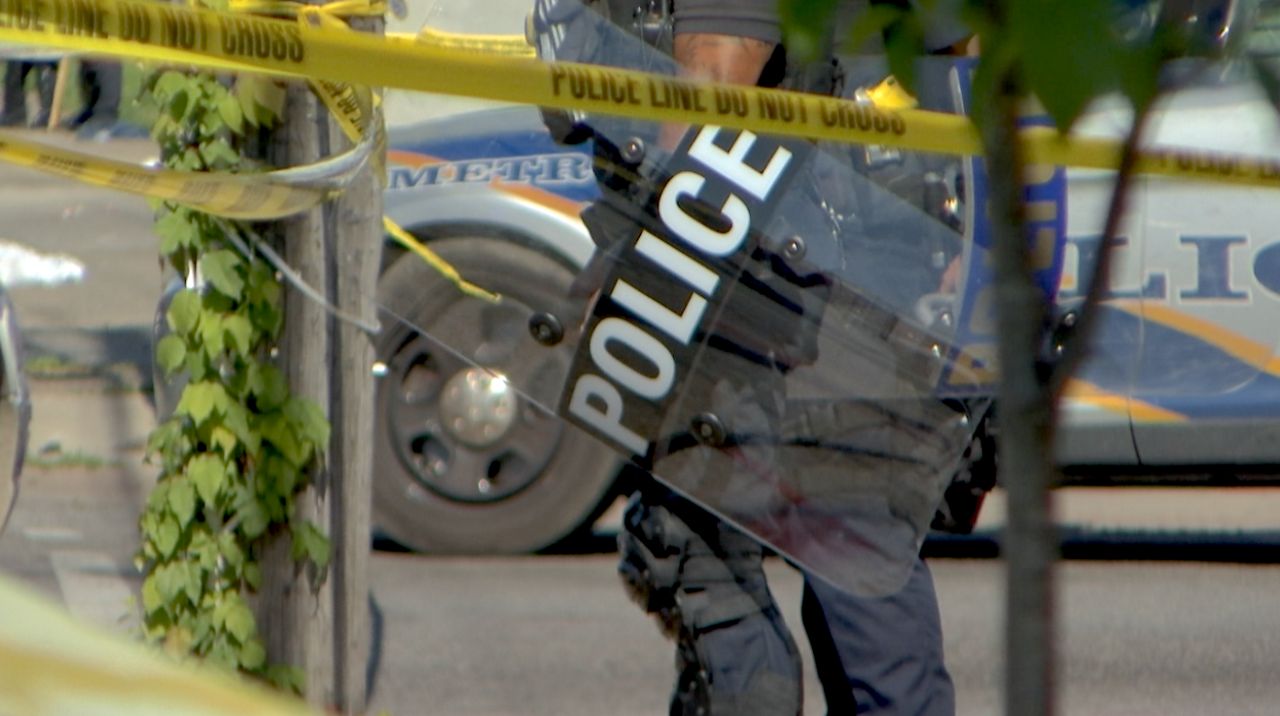LOUISVILLE, Ky. — In big cities around the country, police officers are getting vaccinated against COVID-19 at alarmingly low rates, according to a recent report in The Washington Post.
But it’s not clear what percentage of Louisville Metro Police Department (LMPD) officers have been vaccinated because the department is not keeping track, an LMPD spokesperson told Spectrum News 1. She suggested checking with the Louisville Metro Public Health Department, whose spokesperson said it is also not tracking officer vaccinations.
“The personal health information of employees is not something we can mandate the collection of,” Mayor Greg Fischer said during his COVID-19 briefing Tuesday.
Fischer said that the city has asked police officers to share information on their vaccination status and is incentivizing all city workers to get vaccinated by offering two paid days off.
But Fischer also implied that vaccinations of police officers may be lagging. “Most of our LMPD officers are in the 20 to 40 age cohort that we’re having difficulty getting vaccinations with,” he said.
“We’re doing everything that we can right now to make sure that everybody that works for Metro, including our police officers, is vaccinated," he added.
Questions to an LMPD spokesperson about the efforts to encourage vaccination among officers were not answered.
The River City FOP, the labor union representing LMPD members, also said it is not tracking vaccinations. “The FOP does not track the personal medical information/records of any of our members,” press secretary Dave Mutchler wrote in an email.
Police officers in Louisville have been able to receive COVID-19 vaccines for months. As first responders, they were part of Kentucky's tier 1B and became eligible to receive vaccinations at LouVax, the city’s mass vaccination site, in mid-January.
Prioritizing police officer vaccinations was a recognition of the unique risks of their job, which cannot be performed from home and often involve high-contact interactions with members of the public. In 2020, COVID-19 was the top killer of police, according to the National Law Enforcement Officers Memorial and Museum.
But vaccinating police is also about keeping the rest of the public safe, experts and public officials say. “Police touch people,” Case Western Reserve University bioethicist Sharona Hoffman told The Washington Post. “People would want to know if a police officer coming to their window is protected.”
For these reasons, some have suggested that police officers and other first responders should be subjected to a vaccine mandate. But that idea has proved controversial and attempts early this year to put such a mandate in place in North Carolina and New Mexico were met with litigation.
In Massachusetts, where data shows that hundreds of police officers have declined to be vaccinated, the state attorney general has called for a vaccine mandate for police in order protect incarcerated people.
“They are in a situation where they’re coming into and out of prisons, and they’ve got a captive population,” Attorney General Maura Healey told WGBH last month. “That is part of your job. And if you’re unable to do it and safely take care of those who are incarcerated — and captive — and can’t control what is coming into and out of the prison, then, I think, they ought to be looking for another line of work.”
Louisville is not alone in failing to track vaccinations among police. Houston and Philadelphia, are among other major American cities not tracking the data. A spokesperson for the Lexington Police Department told Spectrum News 1 that it is also not tracking vaccinations.
Mutchler, the FOP spokesperson, said he is not concerned about the lack of data collection related to officer vaccinations. “State and federal officials are tracking how many vaccinations are given,” he wrote in an email. “This seems to be what is important when looking at the numbers.”



